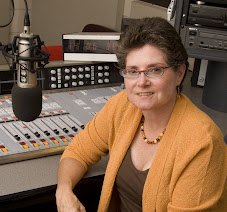Last week, I talked with Kevin DeOliviera about his new film, Steel Valley: Meltdown. If you saw the film on Friday night, you know that it focused on how young professionals and new leaders are trying to create a new Youngstown built primarily around high-tech and green energy jobs. Much as I support the efforts of those who are trying to bring new businesses to the area, I was troubled that the film ignored the very real, concrete problems in the community. It alluded to but did not fully explore the efforts of a number of local organizations who are doing the hard work of organizing – bringing people together around key issues – to create change here.
At the heart of these organizing efforts is the Mahoning Valley Organizing Collaborative. MVOC uses old-fashioned strategies of canvassing, building neighborhood coalitions, and seeking financial support for concrete projects that will improve the quality of life for the majority of the citizens of Youngstown. Their efforts remind us that building a better Youngstown involves not just creating jobs for highly educated young professionals but also empowering long-time poor and working-class residents to work together to rebuild their crumbling neighborhoods. They remind us that Youngstown is not a white, middle-class city that just needs a few green technology jobs to make everything ok.
We are a community scarred by old wounds of racism and economic struggle. Our history gave us a strong work ethic, the determination to survive, and a commitment to this place, but it also left us with strong divisions between city and suburbs, white and black, middle-class and working-class and with persistent poverty, low rates of education, and underemployment. If we want to rebuild Youngstown, we have to bring people together across those divides, and we have to address our most persistent problems.
Perhaps the most concrete scar left by deindustrialization is vacant property. Ian Beniston, my guest on Lincoln Avenue this week, is spearheading MVOC’s efforts to address the problem. Working with dozens of local volunteers, MVOC assessed every plot of land in the city, identifying where we have empty lots and abandoned buildings. Armed with a map that shows a dramatic pattern of vacant properties on the east and south sides, Ian and his partners, including the residents of some of the most affected neighborhoods, are campaigning for state and federal funds, supporting efforts to create new urban green spaces and farms, and working with Congress to develop new policies to help cities like ours.
What I appreciate most about the efforts of Ian and his colleagues is that they are focusing on the concrete, day-to-day realities of Youngstown’s poor and working-class residents as well as their middle-class neighbors, and they are approaching the problem from the streets, not just the offices.
